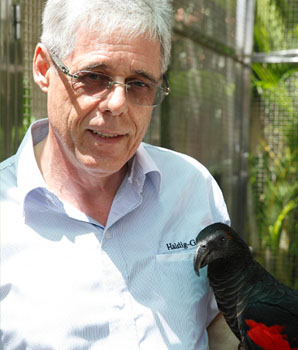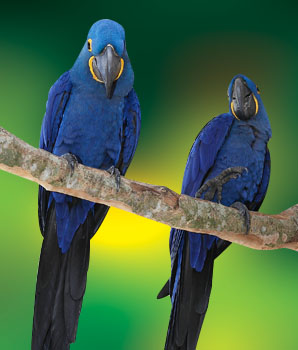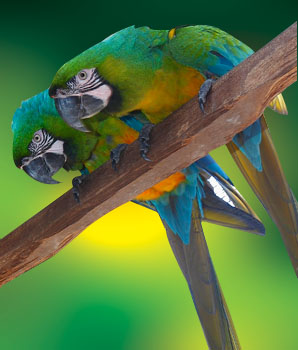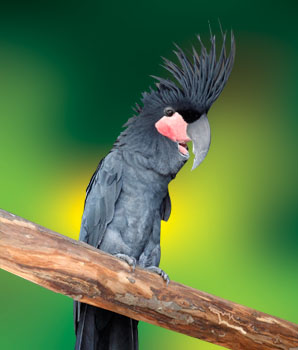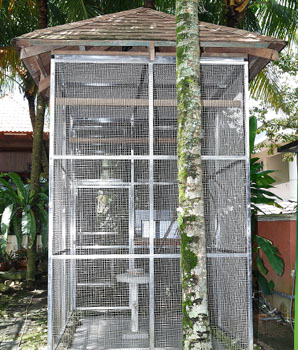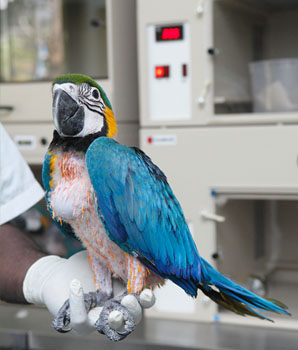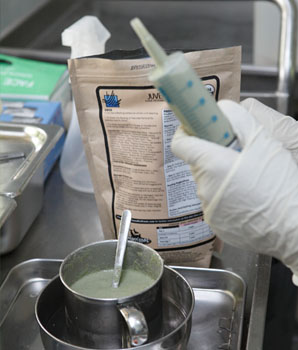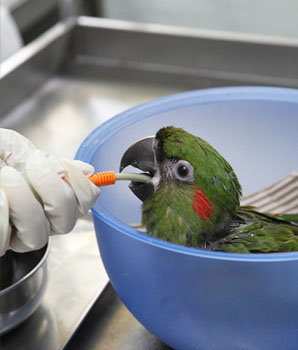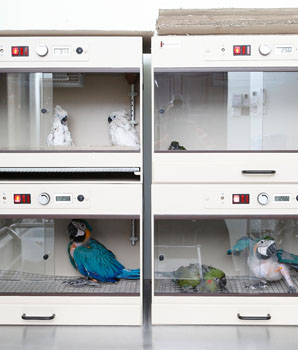Today in our rapidly changing world the need to protect and preserve our environment is abundantly clear. Many species of Aves and Anatide family are among those endangered by the destruction of natural habitat and globally increasing pressure caused by human activities. Numerous species of our earth's wildlife are dwindling to near extinction, including exotic and increasingly rare birds. There is a dramatic decline of tropical forest, birds and parrot species in Malaysia.
The knowledge about wild population causes of the decrease in numbers and protection regulations include the breeder in the overall process of protection of the species. A total ban on keeping and breeding of wild animals as envisaged by unrealistic animal right activists would not contribute to the protection of parrots, softbills and Green Peafowls because their high reproduction rate in captivity makes commercial taking obsolete.
The breeding of wild animals in private or in Zoos are the only type of keeping other than pets where the final aim is not to kill the animal but to (care and provide- in bold) for it which is at the very origin of the idea of animal welfare.
At Haldig-Garden , we believe in "Environment Life Protection" . We are committed to make a difference by working to maintain the safe environment for future generation. Many of the world's birds species are in danger of extinction. A number of these threatened species are cared by Malaysian Zoo or private owners. These wild birds are being threatened by traditional medicine, trade, habitat loss, pollution and illegal hunting.
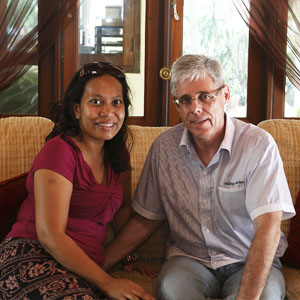
Mr. Walter Hatz & Wife
Our Objectives
HGBC is dedicated to the breeding and conservation of endangered birds in the mission of achieving three objectives;
- To contribute to the preservation of rare bird species by breeding them in captivity. The young top quality parrots can help to establish new breeding nuclei in the importing countries and to improve the already existing ones by adding new bloodlines.
- To terminate smuggling and poaching of wild birds by undermining the market for smuggled and illegal birds through the availability of legal progenies.
- Captive breed and tame parrots of species in demand should replace the poached wild birds in pet shops. Private breeders should have the opportunity to buy mainly bird breed in captivity.
Our Missions
Today in our rapidly changing world, there is a dramatic decline of tropical forest birds and parrots species in Malaysia.
In line with this, HGBC's mission is;
- To protect and to preserve our environment and numerous parrots species including exotic and rare birds.
- To cater a breeding and conservation station focusing on rare and threatened species especially on parrots, softbills and green peafowls. Besides, Malaysia has a tropical climate that is conducive to the breeding and propagation of these rare exotic birds.
Haldig-Garden at Present
HGBC believes in achieving high standard of feeding by providing the parrots, softbills and green peafowls daily fresh fruits, vegetables as well as additional food supplements which are imported from USA and especially designed for Haldig Garden feed specifications to fulfill the nutrition requirement of all species.
HGBC uses techniques of artificial breeding and hand rearing. This method is applied for species threatened with extinction and to those which do not breed successfully enough to avoid the risk involved in parent-rearing and to increase the number of progenies. The technique of hand rearing is also applied for species destined for private breeders desiring tame progenies.
HGBC has also applied international standards for sizing of the enclosures in regards to the particular species of birds.
Haldig-Garden at Future
HGBC are planning to breed and conservate their parrots, softbills and green peafowls in a safe enclosed environment concept.
HGBC has upgraded its present facility and amenities by implementing microchips for all birds. The small microchips are surgically inserted beneath the bird skin to allow for data collection and tracking the birds which continue to be threatened by illegal hunts. Other than to evaluate the birds clinically from outside and endoscopically from inside. This allows us to differentiate the fertility or infertility of each species for breeding purpose. Many diseases like fungus infection of lung sacks (aspegiloss) can be detected during the endoscopical procedure or cloacal or choanal papilomas during clinical evaluation.
HGBC with the support of the Wild Life Department, are planning to build up a gene pool of Macaws, Amazons and Green Peafowls in Malaysia for future good gene pool breeding.
HGBC aim to be the hub for the most successful breeding and conservation catalyst in Malaysia and Asia.
The knowledge gained from our species of birds and their breeding success will help in the future preservation. Successful breeding programs will allow Haldig Garden and Breeding Conservation to supply to all Malaysian captive breeders or for educational research legally.

